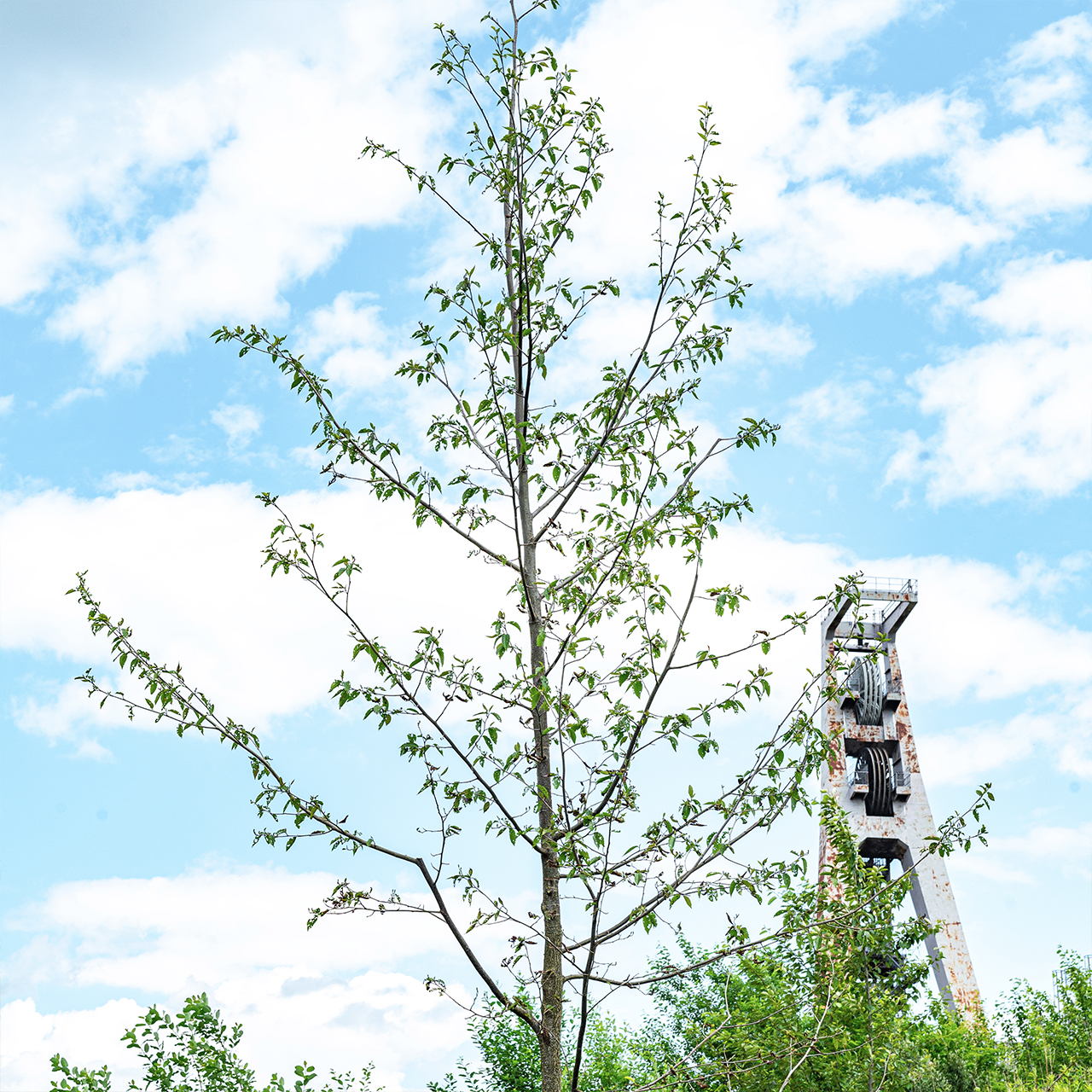Spaeth alder
The tree species was bred at the beginning of the last century as a cross between the Japanese and the Caucasian alder. Its natural habitat is often along rivers or in damp areas. Since it has been crossed with the Japanese alder, however, the Spaeth alder can also thrive in dry locations. Spaeth alders are regarded as undemanding, wind-resistant and lime-tolerant.
Spaeth alder (Alnus x spaethii)
| Family: | Betulaceae – Birch |
| Distribution: | Northern hemisphere in Eurasia and North America |
| Size: | Max. 12–15 metres in height and 6–8 metres in breadth |
| Life: | Up to 70 years |
| Requirements: | Sun to light shade; it is heat-tolerant, frost-hardy, tolerates urban climates and is wind-resistant |
| Soil: | Moderately dry to fresh; slightly acidic to alkaline; loamy substrates |
| Benefits: | Bee pasture and supplier of bird food; flowers in early spring |
For perpetuity
The RAG-Stiftung finances perpetual obligations from German hard coal mining along the Ruhr and Saar rivers and in Ibbenbüren. They comprise pit water management, polder measures and ground water purification at some former coking sites. These tasks are perpetual because rainwater and surface water constantly seep into the underground mine buildings. On its way down, the water dissolves numerous salts and minerals from the rock. It must therefore not become mixed with our precious ground water reserves. To prevent that, RAG pumps over 70 million cubic metres of pit water every year in the Ruhr region alone on behalf of the RAG-Stiftung. More than 1 billion cubic metres of water are moved as part of polder measures. All that is done to ensure that the coal mining district does not get its feet wet in the future. After all, mining has meant that some places are up to twenty metres deeper than they were before coal was extracted from them. Financing by the RAG-Stiftung reduces the burden on the public sector. Hard coal mining is thus the only industry in the world to pay for the economic and ecological consequences of its past out of its own pocket.
Occasion for planting
On 21 December 2018, the Prosper-Haniel mine was the last colliery in the Ruhr region to cease production. That marked the end of around 200 years of mining history in Germany – and another milestone: the beginning of financing of the perpetual obligations by the RAG-Stiftung. The RAG-Stiftung commemorated that historic day by planting this tree

